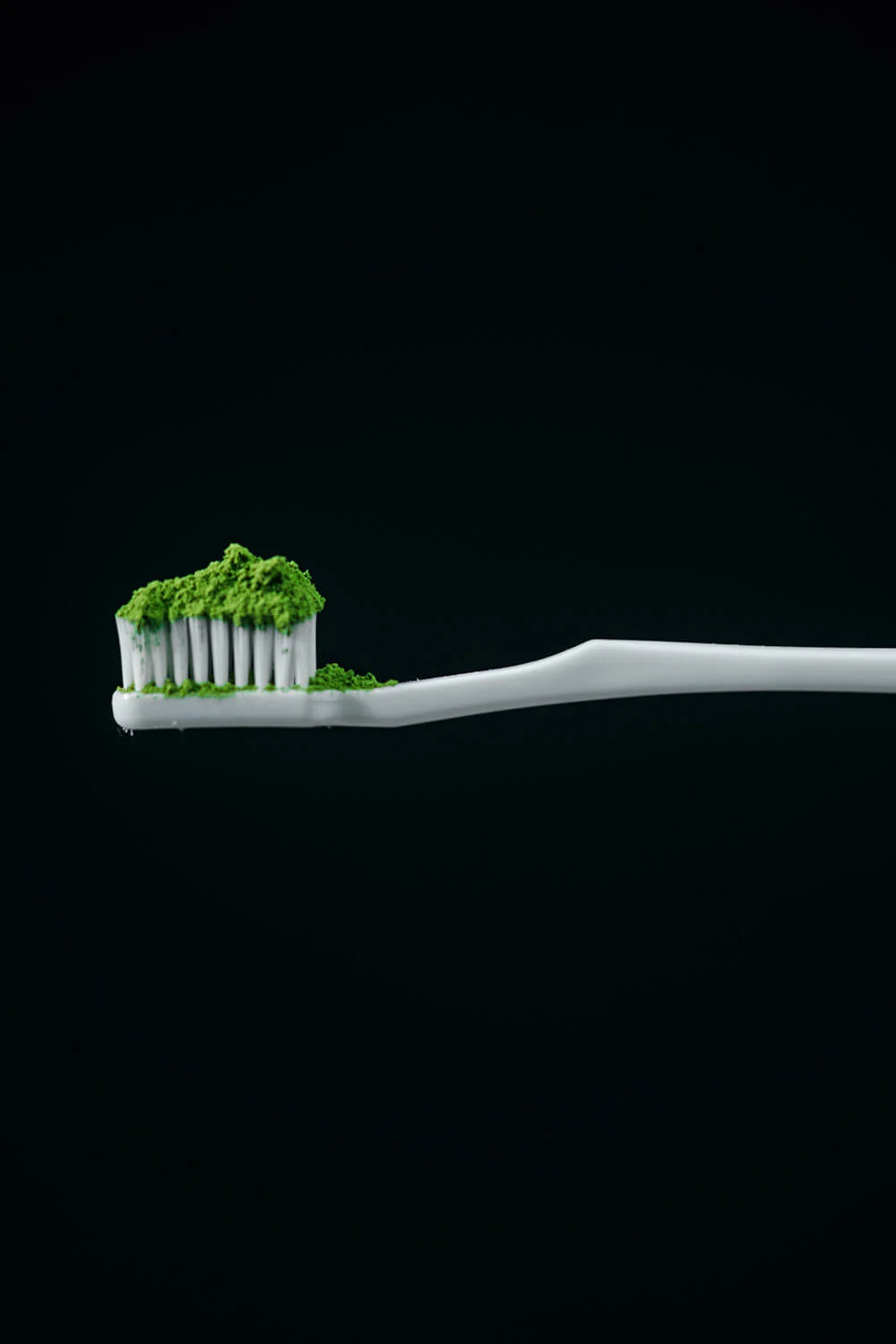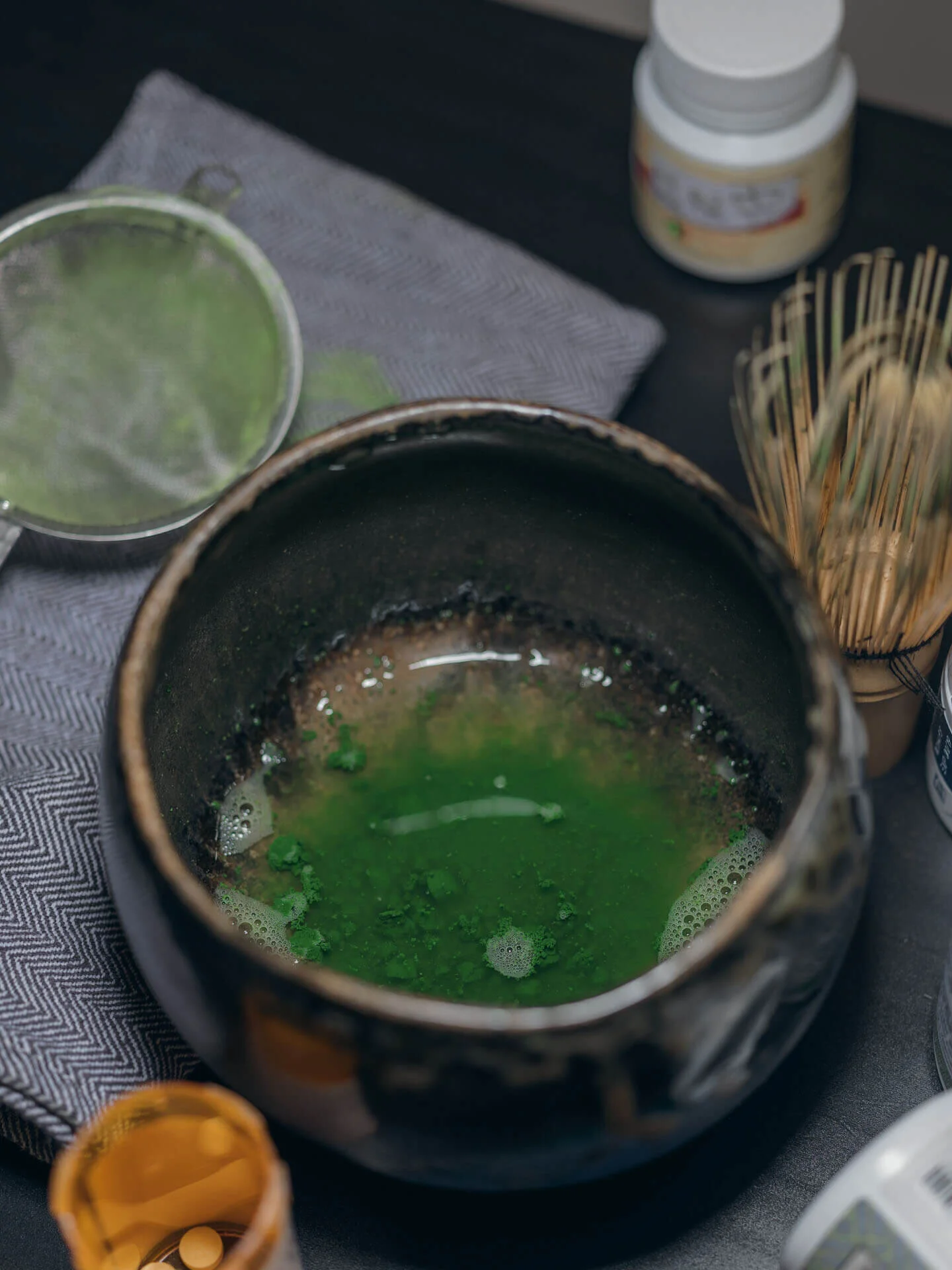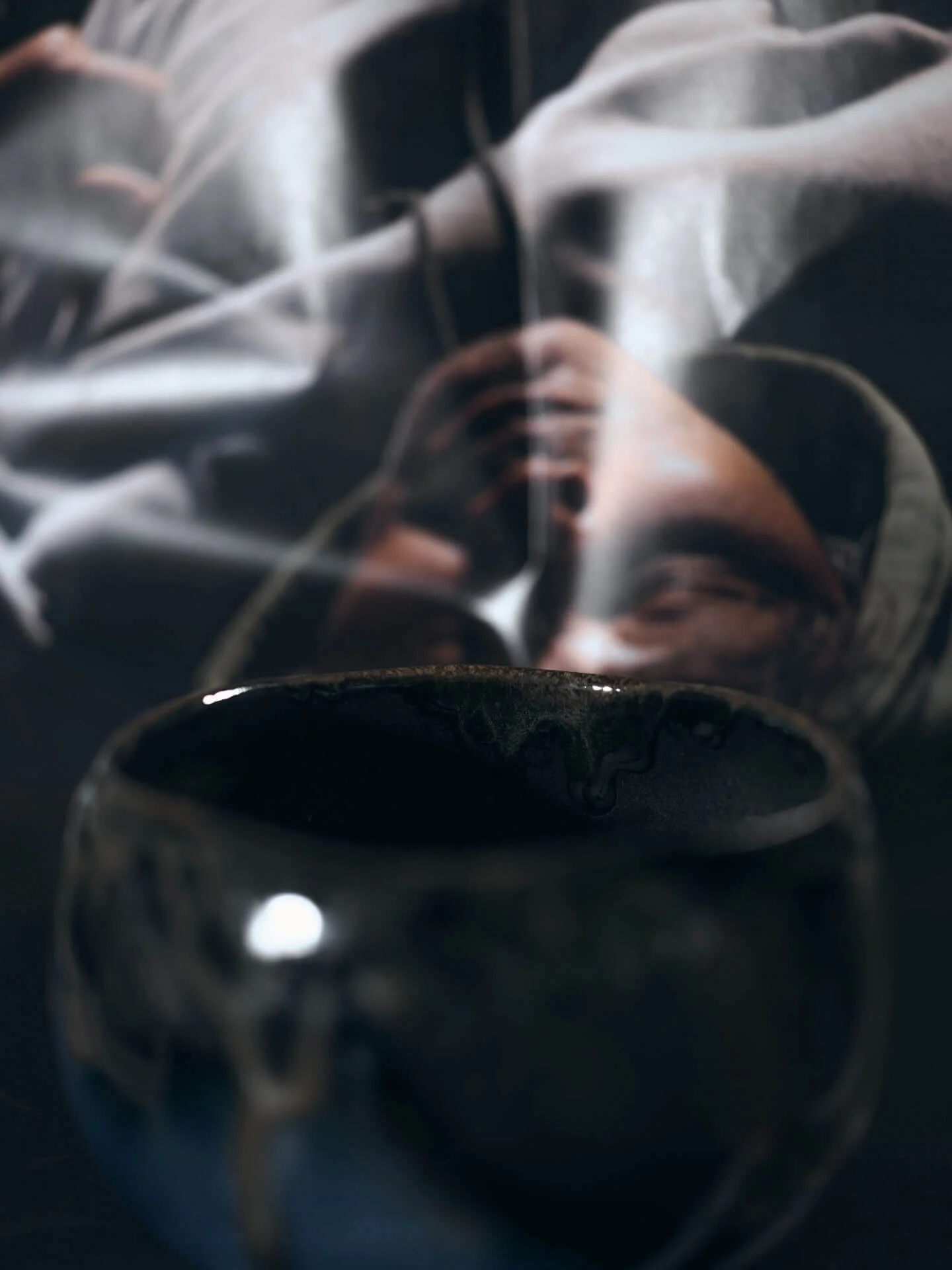5 Reasons Why Matcha is Great for Your Teeth
If you're just getting into drinking Matcha Green tea, you've probably asked yourself, "Is Matcha Good for Your Teeth?" Especially if you're a coffee drinker looking to make the greener switch because of teeth staining.
I won't keep you waiting: yes, Matcha is good for your teeth. And no, Matcha will not stain your teeth either. It turns out that Matcha tea is great for your oral health.
It struck me to write about all the reasons Matcha is great for your teeth after coming back from the Dentist. I'll cover here 5 benefits of Matcha when it comes to your dental health. Everything from fighting cavities, potentially lowering the risk of oral cancer, to even curing bad breath.
The Power of Antioxidants
One of the reasons Japanese Matcha is unique compared to other teas is that it's made of the full tea leaf. With other teas you're only drinking the broth, not ingesting the full plant.
What this means is you're consuming a greater degree of nutritional content, and up to 3 times more antioxidants than other kinds of tea. In any event, let's get into how Matcha green tea helps your oral health.
1 - Fight Cavities with the Antibacterial EGCG in Matcha
Do you know that bitter taste in Matcha? That's actually from a group of antioxidants in the tea plant called Catechins. One of those antioxidants, in particular, is called epigallocatechin gallate, or EGCG for short.
So what makes EGCG so special? Well, for one it's believed to reduce the risk of cancer. This makes sense considering it's a powerful antioxidant. Great to know.
Antibacterial
But as far as your oral hygiene, studies have shown that EGCH has antibacterial properties. In other words, it kills the bacteria in your mouth that creates cavities -- and bad breath (but more on that later.)
There's a lot of research on this topic that you can find pretty easily just by typing "Catechins" in Pub Med (a database of scientific studies.) So yes. By drinking tea after a meal you're cutting down the risk of cavities if you can't brush. A shot of Matcha will kill and retard some of the bacteria.
Extra tip: To get the full benefits, try drinking a shot or two of Matcha after your meals. You'll feel better, and clear out any bacteria starting to form on your teeth.
2 - Matcha Lowers Risk of Developing Gingivitis
Good brushing and flossing will reduce the risk of tooth decay or gum disease -- of course. But life happens, and maybe you take a break from flossing for a day, week, or a decade or two.
Gingivitis is a kind of gum disease, in which the gums become inflamed and tender. Some nasty symptoms include:
Sore gums
Bad breath
And even tooth loss
Yes, Gingivitis is a problem
You're probably like me, thinking this is a condition you'll only find in destitute far-away countries. No so. 61.5% of children in the United States have a degree of Gingivitis.
The Catechins antioxidants in Camellia sinensis (tea plants) have an anti-inflammatory effect which is beneficial for those suffering from Gingivitis and help reduce the risk of developing it. It's worth noting that catechins are concentrated in Green tea, rather than Red tea (known as Black tea in the West.)
Daily Brew
It's totally safe (and ultimately very good for you) to drink Matcha daily. 1 gram of Matcha is a typical serving, which only has 25-30gram of caffeine (about half a cup of coffee). If you're still worried, drink it first thing in the morning to boost the health of your gums.
3 - Green Tea Prevents Plaque from Building Upon Your Smile
Not only does Matcha kill bad bacteria in your mouth and lower inflammation -- research also shows that it prevents the plaque from sticking to the teeth’ enamel to begin with. This is due to the Polyphenols in tea.
(A little science stuff: there are 4 categories of Catechins [a kind of polyphenol] in tea - which make up 30%-42% of the weight in dry tea leaves. Most of that is EGCG.)
Whatever bacteria aren’t killed by your Matcha green tea mouthwash is going to have trouble sticking to your tooth enamel.
4 - Matcha is Proven to Reduce Bad Breath
When it comes to the Matcha Vs Coffee debate, here's a clear point for Matcha. A cup of coffee in the morning only makes your breath worse. Matcha (or drinking Green tea in general) on the other hand clears it up.
This shouldn't be a surprise. Back in point #1, I covered that Matcha kills bacteria. Those bacteria live in your mouth and break down protein. Innocent enough, but that process releases volatile sulfur compounds. And yeah, they don't smell good.
The research here is pretty clear: drink tea. Smell better. Funny enough, some "bad breath" gums and sprays contain tea polyphenols as an ingredient.
Extra tip: You can boost your breath’s freshness either by using a mouthwash with Green tea extract or by drinking Matcha after your meals. That’ll keep your mouth moist (saliva has natural antibacterial properties) and will, in itself, clear away more bacteria to prevent halitosis.
5 - Anti-fungal Properties of Matcha Overpower Oral Thrush
Oral thrush is a fungus (named Candida Albicans) that typically builds up on the mouth or the tongue. It looks like clumps of white spots. It can be caused by a whole rainbow of different underlying conditions, ranging from simple dehydration to wearing dentures, or even various medications.
As it turns out, Matcha has anti-fungal properties that reduce (but not cure on its own) oral thrush and other fungal conditions:
In one study, a Green tea extract and sodium hypochlorite mixture reduced the Candida Albicans sample by 1/3 to 1/2 its initial amount.
Another study showed that oral thrush bacterial growth was slowed by 95.1% to 98.6% by the antioxidant in Matcha.
If you typically have a dry mouth then you're at higher risk for oral thrush. This is another way to prevent issues.
A Few Other Matcha Oral Health Facts
Among the 5 reasons why Matcha is good for your teeth listed in this blog post, there are a few more facts to cover.
All tea contains natural flouride, absorbed through the root system of the tea plant, which is good for your dental health.
The ECGC (with its highest concentration in Matcha of any tea) is believed to help prevent oral cancer. If you smoke, drink Matcha.
There's evidence that chlorophyll, the pigment responsible for Matcha's green color, may slow cancer growth. Though the evidence on chlorophyll is limited so take it with a grain of salt.
Does Green Tea Cause Tooth Decay?
No, Green tea does not cause tooth decay. Research indicates that Green tea prevents cavities as the catechin antioxidants (that make the tea taste bitter) have antibacterial properties. Drinking Green tea after a meal helps your oral health and keeps your enamel strong.
How to Start Drinking Matcha if You're New
If you're new to Matcha and don't know where to start, you should give my "what is Matcha?" article a visit. It covers where Matcha is from (Japan), which makes it so unique (a lot!), and some of the common flavors and aromas you'll find.
But to give a quick introduction, you can make Matcha pretty easily at home. While there are ceremonial ways to brew, you can keep things simple with this recipe:
Mix 1 TSP with 1/4th cup of hot (but not boiling!) water.
Just a fork to agitate the mixture until foamy.
Drink!
Good Matcha VS Bad Matcha
One other thing, Matcha is similar to wine: you can get bottom-of-the-barrel stuff that frankly -- tastes bad. Some beginners are put off by bitterness - but here's the thing: good Matcha is not bitter. That's usually reserved for the cheap stuff.
You don't need to break your bank, but you can find good and affordable quality stuff. There'll be low bitterness and rich umami savory notes, so no need to add milk or sugar (which would not make your dentist happy.)
Recap
To recap, Matcha is great for your oral health because it:
Slows and kills bacterial growth, reducing the risk of cavities.
Hydrates the mouth and can fight gingivitis and other gum conditions.
Stops plaque from gripping onto teeth.
Reduces bad breath by stomping out the source of sulphuric odors.
Slows the growth of fungus and can supplement curing conditions like oral thrush.
It's worth noting too that I don't drink Matcha because of the health properties (that have been known in the far East for thousands of years before modern medicine.) There's more to Matcha than medicine. There's history, culture, and most importantly (to me) taste.
If you’re interested in buying quality Matcha, be sure to check out Ooika’s selection! We authentically stone-mill Japan’s most rare and celebrated single-cultivar Matcha, here in the United States, to ensure unparalleled freshness and quality to our customers. You can buy our freshly ground Matcha online here.
MORE ON CHINESE TEA






